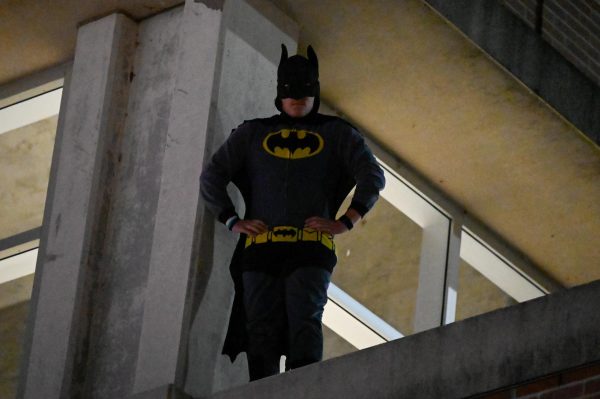Professors must take breaks into consideration for scheduling exams
During a long, relaxing break, the last thing a student needs is to panic and cram for an exam the day after break is over. Sadly, this is the case for some.
Although there are many professors who understand students are unlikely to get work done during a break or long holiday, there are some who feel it’s the perfect time for students to study and work on assignments.
While it’s true that breaks allow students to have more free time to focus on an assignment, almost no one is going to because it’s supposed to be a break from school. After working hard, breaks are needed so everyone can come back re-energized for the rest of the semester.
UW Oshkosh senior Donnie Bantle said it’s helpful for exams to be after break, but not on the day after students return to class.
“I think it is beneficial because it gives students time to not cram before the break,” Bantle said. “I feel like at least one class should occur right when coming back. Having an exam on Monday at 8 a.m. coming back from break wouldn’t be fair. I think Wednesday would be completely fine.”
There are many professors though who work toward not scheduling exams for immediately after breaks. Journalism professor Sara Steffes Hansen said she tries to set up her classes taking breaks into consideration.
“I typically set up the exam schedule in advance of the semester starting, factoring in breaks and holidays,” Hansen said. “Many of my classes involve exams and projects, so I try to set up the syllabus taking into account all factors. Sometimes the timing can be difficult given demands of a particular class or subject matter and uncontrollable factors. For example, my students work on ad campaigns and other external projects that sometimes require work outside of normal class timeframes.”
Along the same train of thought, economics professor Chad Cotti said he tries to avoid scheduling exams after long breaks that allow for student travel.
“I try not to schedule exams after a long break that typically involves student travel,” Cotti said. “So, for example, I avoid scheduling an exam on the class after returning from spring break or Thanksgiving.”
Although many professors work toward not having exams right after a long break, it should be the same after a major religious holiday. It isn’t wholly fair for a professor to expect a student to study for an exam when they may be going home to celebrate with their families.
UWO senior Holly Koenitzer said she thinks the timing of an exam after a holiday depends on whether students will be going home to celebrate or not.
“Well, I think that’s a case-by-case scenario because it depends on if you’re going home or not and celebrating,” Koenitzer said. “Also, it’s much shorter, so there’s less time to conveniently ‘forget’ to study.”
Understandably, it’s much more difficult for professors to know how many of their students will be traveling to celebrate during an otherwise regular weekend.
However, in general if there is a viable reason that a student would need to take an exam on a different date, it wouldn’t hurt to talk to them about it — they may just allow it to be taken on a separate day.
Overall, while some professors are considerate of holidays and breaks, there needs to be more that consider these when scheduling exams. Especially since having an exam right after a break or big holiday is just setting their students up for failure.









